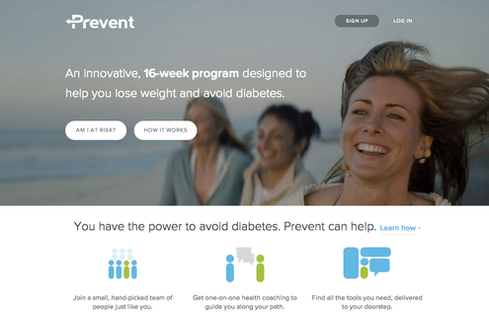CMS Won't Budge On ICD-10 Deadline
Government agency will, however, allow some hardship exemptions for Meaningful Use Stage 2.


8 Healthcare Startups Catch Fire
8 Healthcare Startups Catch Fire (Click image for larger view and for slideshow.)
The ICD-10 deadline will not change, the administrator of the Centers for Medicare and Medicaid Services told HIMSS14 attendees at a keynote on Thursday. And the government should have used a systems integrator to oversee Healthcare.gov, said Marilyn Tavenner.
Although providers and payers must be prepared to meet the Oct. 1 ICD-10 deadline, CMS may give "a hardship exemption" to facilities unable to achieve Meaningful Use 2, said Tavenner, a point she reiterated during a brief Q&A exchange with moderator Dr. Carol Steltenkamp of HIMSS.
"There are no more delays and the system will go live on Oct 1. Let's face it guys, we've already delayed it several times and it's time to move on. It's a standard in the rest of the world," said Tavenner.
CMS won't offer a 90-day window where it operates both ICD-9 and ICD-10, something several health IT professionals requested. Their fear: Hospitals won't receive Medicare or Medicaid payments on time.
"The onus is going to fall on healthcare facilities, not the government. A three-month window is not unreasonable, given the amount of data involved," said one clinical engineer manager from a Texas hospital who asked not to be named. "Anything would be better than, 'Hey, we're going live on Oct. 1.'"
Unfortunately, this option is unfeasible, said Stacey Shagena, a health insurance specialist at CMS, in an interview. CMS would have to run two systems to meet this request, said Shagena, who works extensively on ICD-10. "We are ready for ICD-10. We have been ready since last October," she said of CMS.
{image 1}
Healthcare providers are moving closer to achieving Meaningful Use, Tavenner said in her speech. More than 60% of healthcare professionals and more than 80% of hospitals have EHRs that qualify for Meaningful Use. "To date we have paid close to $21 billion to this program for hospitals and professionals," she said.
The government sees an average of 300,000 new Medicare enrollees each month, said Tavenner. More than half Medicare Advantage members choose plans with four or more stars, she said, underscoring the importance of quality and engagement. It also demonstrates the value of an easily navigable, fully operational, and integrated website -- something Healthcare.gov was not in its early days, Tavenner readily admitted.
"I am really tired of talking about [the website]," she said, adding "I do love healthcare.gov, I love our call center, and I do love the work we're doing. I am pleased to report we have made substantial progress."
CMS should have hired an experienced third party to oversee website development, Tavenner said. "Having a systems integrator was probably the thing we needed most but didn't realize until we got there."
Looking ahead
National exchanges are on the horizon, said Karen DeSalvo, National Coordinator for Health Information Technology, at the Office of the National Coordinator for Health Information Technology (ONC).
"We need a national record," agreed Mony Weschler, chief applications strategist and architect, Applications Technology Services, at Montefiore in Yonkers, NY., in an interview. "That will enable better care, better research, better population health."
The Physician Sunshine system -- a searchable, public file to determine physicians' financial interests -- will be operational this fall, Tavenner said. "It is ongoing and it is on a 2014 timeline," she said.
Download Healthcare IT In The Obamacare Era, the InformationWeek Healthcare digital issue on changes driven by regulation. Modern technology created the opportunity to restructure the healthcare industry around accountable care organizations, but ACOs also put new demands on IT.
About the Author(s)
You May Also Like
How to Amplify DevOps with DevSecOps
May 22, 2024Generative AI: Use Cases and Risks in 2024
May 29, 2024Smart Service Management
June 4, 2024







